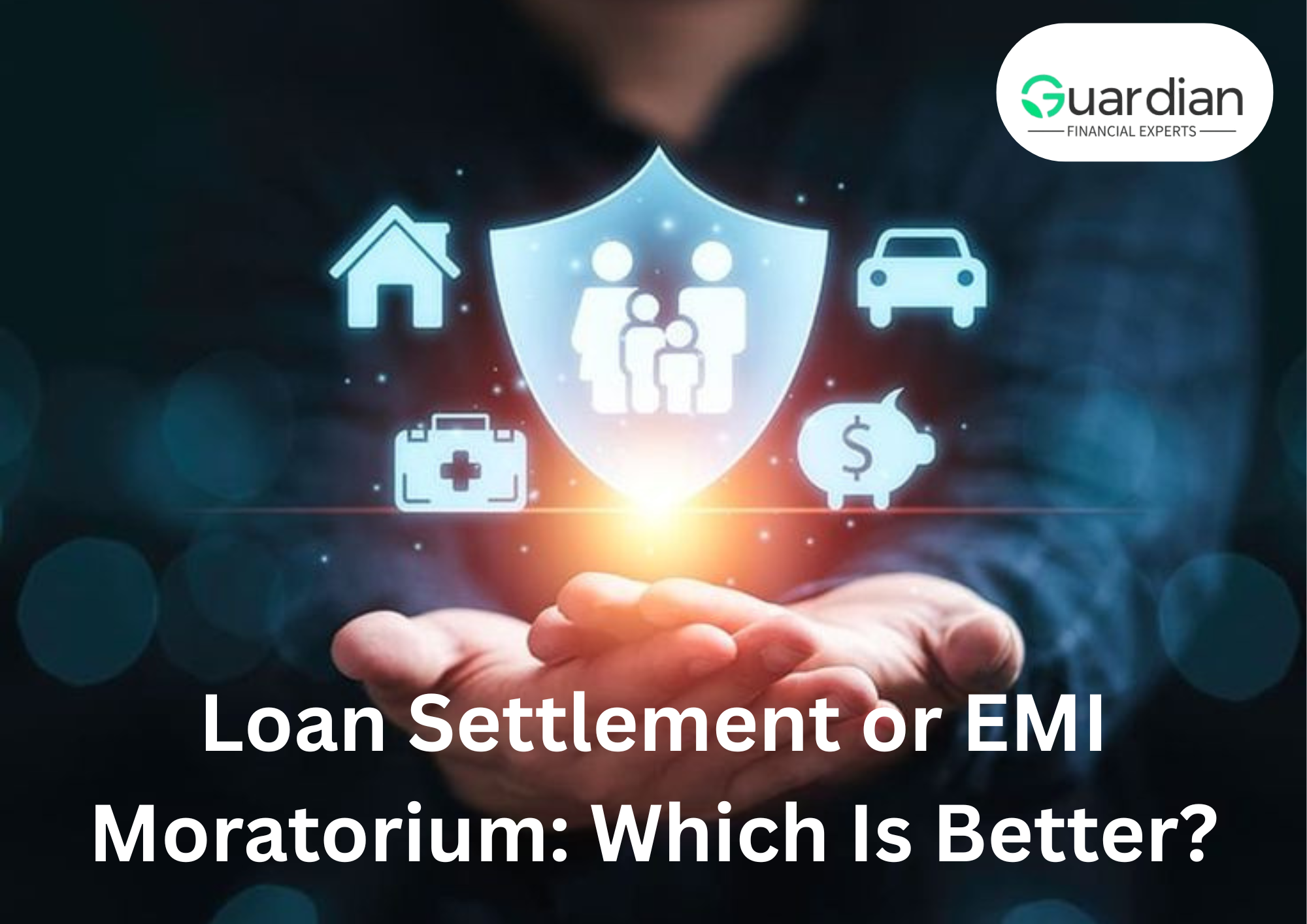Financial hardships can arise unexpectedly—whether due to job loss, medical emergencies, or business downturns. In such times, loan repayment becomes difficult, pushing many borrowers to explore relief options. Two commonly considered choices are loan settlement and EMI moratoriums. But which one is better for your long-term financial health?
In this blog, we break down both options, comparing their pros, cons, and the ideal circumstances for each. If you’re struggling with repayments, understanding the loan settlement process and the implications of an EMI moratorium is essential to make an informed decision.
What Is a Loan Settlement?
Loan settlement refers to a process where the borrower negotiates with the lender to pay a portion of the outstanding loan amount as a final payment, often due to financial distress. Once this reduced amount is paid, the lender agrees to consider the loan “settled,” and no further dues are required.
However, this is not the same as a full loan repayment. A loan settlement is typically marked as “settled” in your credit report, not “closed,” which can negatively impact your credit score.
What Is an EMI Moratorium?
An EMI moratorium is a temporary relief offered by lenders allowing borrowers to pause EMI payments for a specific period. This doesn’t waive off the dues but postpones them. Interest continues to accumulate during the moratorium period, which means you end up paying more over the loan’s lifetime.
EMI moratoriums are often offered during widespread financial disruptions, such as the COVID-19 pandemic. Unlike loan settlement, taking a moratorium does not immediately impact your credit score.
Loan Settlement vs. EMI Moratorium: A Comparative Breakdown
| Feature | Loan Settlement | EMI Moratorium |
|---|---|---|
| Purpose | Permanent relief due to financial hardship | Temporary relief during short-term distress |
| Impact on Credit Score | Negative | Neutral to slightly negative |
| Repayment Status | Marked as “Settled” | Remains “Active” or “Deferred” |
| Future Loan Eligibility | May face rejection or higher interest rates | Minimal impact |
| Interest Accrual | No, after settlement | Yes, continues during moratorium |
| Long-term Benefit | Reduces burden permanently | Helps manage short-term cash flow |
When Should You Choose Loan Settlement?
Loan settlement should be considered as a last resort, ideally when:
- You are unable to generate income in the foreseeable future.
- You have already defaulted or are at the risk of defaulting.
- Your financial position has significantly worsened due to events like job loss, business failure, or medical emergencies.
- Legal action is imminent, and you wish to close the matter quickly.
A loan settlement expert, such as those at Guardian Financial Experts, can help negotiate a fair settlement amount and assist in navigating the loan settlement process. Their team ensures you understand the long-term implications and prepares your case with documentation that supports your claim of financial hardship.
When Is an EMI Moratorium the Better Choice?
Opt for an EMI moratorium if:
- Your financial difficulties are temporary (e.g., a few months).
- You expect your income to resume in the near future.
- You want to protect your credit score and maintain future borrowing ability.
- You need time to stabilize your finances without defaulting.
An EMI moratorium gives you breathing space but at a cost—accrued interest. It is best suited for borrowers with short-term liquidity issues rather than long-term insolvency.
Key Considerations Before Making a Choice
- Duration of Financial Strain: Is your hardship temporary or long-term?
- Credit Score Sensitivity: Do you plan to take a loan in the next 1–2 years?
- Ability to Repay Later: Can you handle a higher EMI or extended tenure after a moratorium?
Choosing the right option depends on your specific situation. Where an EMI moratorium offers flexibility, loan settlement is more of a damage control mechanism. However, a poorly executed loan settlement can lead to credit rejection in the future.
Final Thoughts
If you’re facing serious financial hardship, understanding your options thoroughly is crucial. While both loan settlement and EMI moratoriums offer relief, they serve very different purposes. One impacts your creditworthiness; the other increases your repayment cost over time.
At Guardian Financial Experts, our loan settlement experts provide personalized guidance and handle the loan settlement process with care and professionalism. We help you evaluate your financial situation, negotiate with lenders, and work toward the best possible resolution.
Before taking any decision, consult a professional and explore all available avenues. Your financial future is worth the time and consideration.

